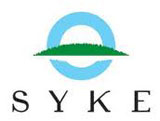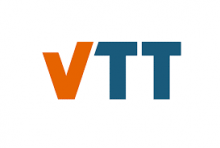
Objectives of the service
The project objectives are the specification and implementation of an integrated solution for collection, processing and management of Earth Observation and in-situ water quality data in the Baltic Sea region, enabling efficient information delivery to end-users via commercial and public services. Such an integrated solution will allow new services for water quality monitoring and coastal surveillance in the Baltic Sea region to be introduced. This concept offers a value-adding service to the relevant organisations and companies in the area.
The Feasibility Study will also highlight specific service value chains for a proof-of-concept to validate critical aspects of the integrated solution.
Users and their needs
The Target Users are organisations such as water companies, sewage companies, dredging companies, port authorities, fish farms and offshore construction companies from countries in the Baltic Sea Region. The target groups will be refined when the economic analysis proceeds, as the service scenario will be emphasized and researched further.
Service/ system concept
Several tens of use-cases, and ~20 measurement techniques will be examined to find the most economic, feasible and usable technologies for the selected purposes. More than a dozen different user groups will be consulted to consider these issues.
Space Added Value
Satellite Navigation (SatNav):
All measurements are location-stamped, using GPS-technology. When Galileo becomes operational it will give additional benefits with improved location knowledge.
Earth Observation (EO):
EO data supported by in-situ measurements can be used to derive a range of parameters relevant to water quality, and together these data types form a complete measurement set.
Satellite Communications (SatComm):
Remote measurements such as ships and smart buoys can use satellite communications to relay their information to the data centres.
Current Status
The project team concluded a Final Presentation on 31st January 2014.
The viability analysis confirms that the services add a significant value to existing, but fragmented systems. A common information and data portal will bring together information from numerous sources. Gathering, processing and storing of different data types provide an interesting business case, as do future commercial value-adding services building on a comprehensive Balmon service network.
Users of Balmon water quality information services will gain easier and broader data access than currently available for the Baltic Sea. An objective is to provide efficient data dissemination, meaning that users can select their own, customized measurements. For commercial users, e.g. dredging area water quality analysts and reporters, the service will be an important tool for environmental impact analysis and to create new/own services. The system also provides access to archived observation and aggregated products and data evaluation, e.g. time-series and trend analysis.
This project has been completed. The project team is negotiating about the possible Demonstration Project and its team structure.






